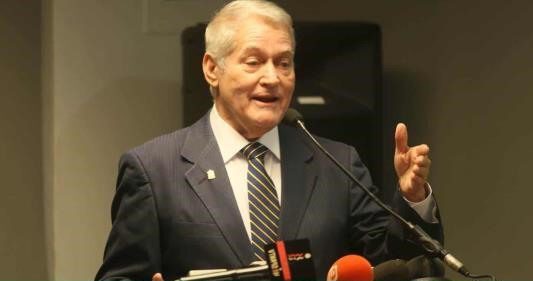BTN News: In a recent statement, the president of the National Association of Companies and Industries of Herrera (ANEIH), Euri Andújar, commended the achievements highlighted by President Luis Abinader during his inaugural address for his second term. One of the standout accomplishments was the impressive milestone of attracting 10 million tourists in 2023, with ambitious projections of reaching 11 million this year. This achievement not only showcases the country’s growing appeal as a top tourist destination but also underscores the effectiveness of the government’s strategies in boosting the tourism sector, which plays a critical role in the Dominican Republic’s economy.
However, Andújar voiced a different perspective regarding the president’s assertion that unnecessary government spending has been significantly reduced over the past four years. According to Andújar, while reducing wasteful expenditure is undoubtedly important, the current administration has not yet fully aligned government spending with quality criteria. He emphasized that there is still much work to be done to ensure that public resources are utilized efficiently and effectively, reflecting a more prudent approach to fiscal management.
Addressing the country’s projected GDP growth of 5.4%, which closely aligns with the 6% target set in the Development Plan 20-36, Andújar urged caution. He pointed out the presence of unpredictable variables in the global and local economy, which could impact these growth forecasts. While the projected growth is certainly encouraging, Andújar recommended maintaining a cautiously optimistic outlook, given the potential for unforeseen economic challenges.
Andújar also brought attention to the importance of the proposed labor and fiscal reforms mentioned by President Abinader. He stressed the need for an inclusive dialogue involving the business community and other economic stakeholders to ensure that these reforms are fair and equitable for all parties involved. The reforms, he suggested, should not only focus on revenue collection but also address broader issues such as tax evasion, informality in the labor market, smuggling, and other long-standing challenges.
In his remarks, Andújar expressed hope for a comprehensive fiscal reform that goes beyond merely increasing the tax burden on those who already contribute. He advocated for a reform that tackles the root causes of revenue shortfalls, such as tax evasion and the informal economy, which continue to undermine the country’s fiscal stability. This, he argued, is essential for creating a more balanced and just fiscal system that supports sustainable economic growth.
Furthermore, Andújar acknowledged the importance of reducing public spending through the elimination or merging of unnecessary institutions. However, he reiterated his disagreement with the president’s claim that unnecessary spending has been substantially reduced in recent years. In Andújar’s view, the management of public funds has not yet met the desired quality standards, and more rigorous efforts are needed to ensure that government expenditures are both effective and transparent.
In summary, while recognizing the progress made in certain areas, Andújar highlighted the need for ongoing improvements in fiscal management and economic policy. His remarks underscore the importance of not only celebrating achievements but also critically assessing areas where further progress is needed, particularly in the efficient use of public resources and the implementation of comprehensive reforms that address the country’s most pressing economic challenges.


